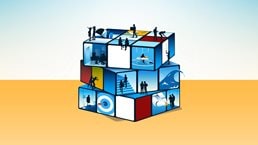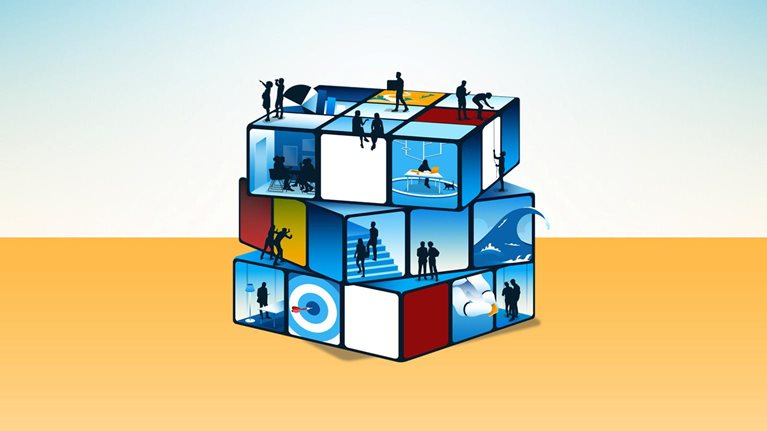The LEGO Group has captured the imagination of children and adults around the world for more than 90 years. The Denmark-based company sees children as its role models and puts their forever-learner mindset at the center of everything the company does, from alignment on its long-term vision and mission to the equality among all employees. McKinsey spoke to Loren I. Shuster, the LEGO Group’s chief people officer and head of corporate affairs, about how the company continuously innovates to keep its edge, evolves its brand and culture, and remains resilient and steadfast in its purpose and mission.
What do you think has made the LEGO Group so successful?
Loren I. Shuster: There are a few things that make the LEGO Group unique and help explain the company’s longevity and success. Since the organization was founded, there has been a clear alignment on our purpose among the owner, board, CEO, management, and employees. The alignment and clarity have shaped our vision, mission, values, and culture. They’ve enabled us to focus on growth and learning and have been a driver of our success and resilience throughout generations and challenges.
The LEGO Group sees children as role models. They inspire us because they are forever learners. Our mission in return is to inspire and develop them because they are the builders of tomorrow. We are 25 percent owned by the LEGO Foundation, which is a purpose-driven not-for-profit organization focused on bringing the benefits of learning through play to underprivileged children around the world.
Another success factor is our direct relationship with our consumers—both children and adults—in addition to our valuable business-to-business relationships with retailers. It allows us to have conversations about our products, something for which many brands yearn. And we connect with them through multiple forums and channels. The YouTube channel on which users post videos about LEGO play experiences is one of the top channels in the world.

State of Organizations: Lessons from leaders
How has the company worked to define its purpose? What role does it play in attracting and retaining talent?
Loren I. Shuster: Since 1932, when Ole Kirk Kristiansen founded the carpentry business that became the LEGO Group, the Kristiansen family has played a leading role in our organization through to the fourth-generation owners today. The family and all our colleagues remain committed to making a positive difference for children around the world. This ambition comes alive throughout the LEGO Brand Framework, which articulates our purpose, mission, and values and steers everything we do today. It’s built around four important promises to people, play, the planet, and our partners.
We’re investing in our people and brand for the long term. We’re not trying to hit a quarterly target—we’re trying to become an immersive brand that people want to engage with across generations. We still innovate and try new things in ways that protect our brand and our people for the future. Our employees and partners see that, and it shows up in motivation and satisfaction.
We’re investing in our people and brand for the long term.
How does the LEGO Group live out that people promise?
Loren I. Shuster: Our people promise is a critical component of our employee value proposition and how we attract and retain talent. It’s our commitment to creating a safe, healthy, respectful, diverse, and equitable workplace for all employees. For example, we believe every employee should be treated equally.
When we introduced universal parental leave, a minimum of 26 weeks was allotted for the birthing parent, whether an hourly factory worker or a salaried executive. That philosophy carried through the COVID-19 pandemic. Although our stores and factories were shut down, we didn’t lay off anyone, and we continued to pay our colleagues and give additional compensation and benefits equally around the world, from Denmark to Mexico.

The State of Organizations 2023
Another way we live our people promise is through our philosophy on leadership. Again, children’s hands-on, minds-on approach to learning inspired our approach to cultivating leadership behaviors and mindsets. We developed our “Leadership Playground” model to ensure everyone is heard, contributing, respected, and valued. In the Leadership Playground, anyone can volunteer to lead groups focused on employee health and well-being, innovation, and creativity. We believe that to continuously thrive in the constantly changing world, everyone in an organization needs to act as a leader, not the executive leadership team alone.
We developed our ‘Leadership Playground’ model to ensure everyone is heard, contributing, respected, and valued.
How do you remain steadfast and act with speed at the same time?
Loren I. Shuster: Our long-term view has created a stable backbone for us and sent a strong signal to our employees, customers, and partners. That, paired with creativity, learning, and relevance (such as taking the brand digital), has helped us to act with speed while remaining steadfast. In some cases, having a rigid platform helps with scaling and growth. Rigidity in our manufacturing enables a refined product and a higher level of profitability. Meanwhile, we need more speed around our digital products to create a better experience for consumers.
One of the biggest strategic choices we made recently is a partnership with Epic Games to shape the future of the metaverse to make it safe and fun for children and families. We believe there is huge potential for kids to develop lifelong skills such as creativity, collaboration, and communication through digital experiences. But we have a responsibility to make [these experiences] safe, inspiring, and beneficial for all. Just as we’ve protected children’s right to safe physical play for generations, we are committed to doing the same for digital play. We want to create an exciting and playful future.
This interview is part of the Lessons from leaders collection within The State of Organizations 2023 report. These conversations were conducted by members of McKinsey’s People & Organizational Performance Practice with leaders of organizations that exemplify best practices relating to the ten most significant shifts facing organizations today.
Loren I. Shuster is the chief people officer and head of corporate affairs at the LEGO Group.
Comments and opinions expressed by interviewees are their own and do not represent or reflect the opinions, policies, or positions of McKinsey & Company or have its endorsement.


